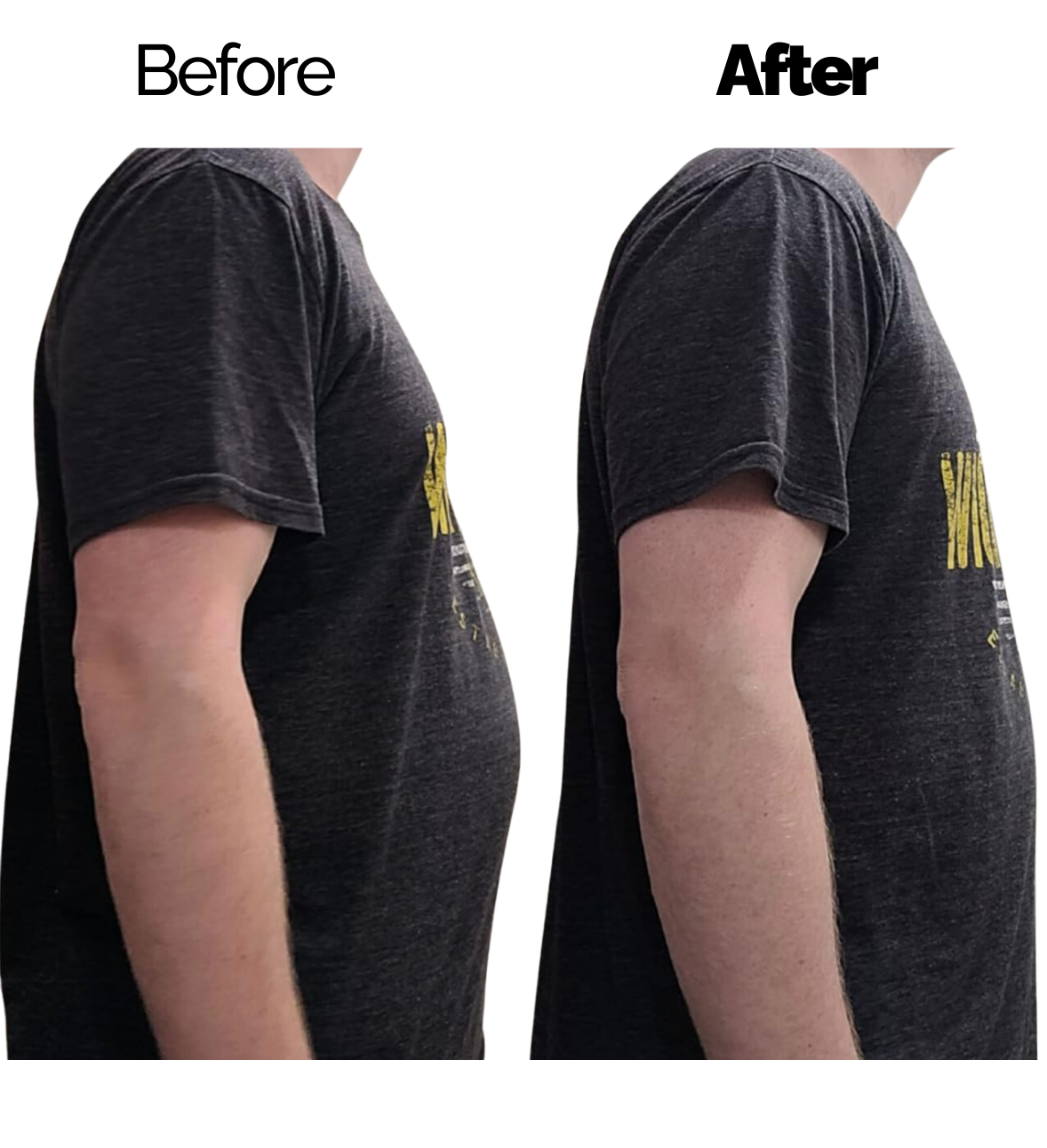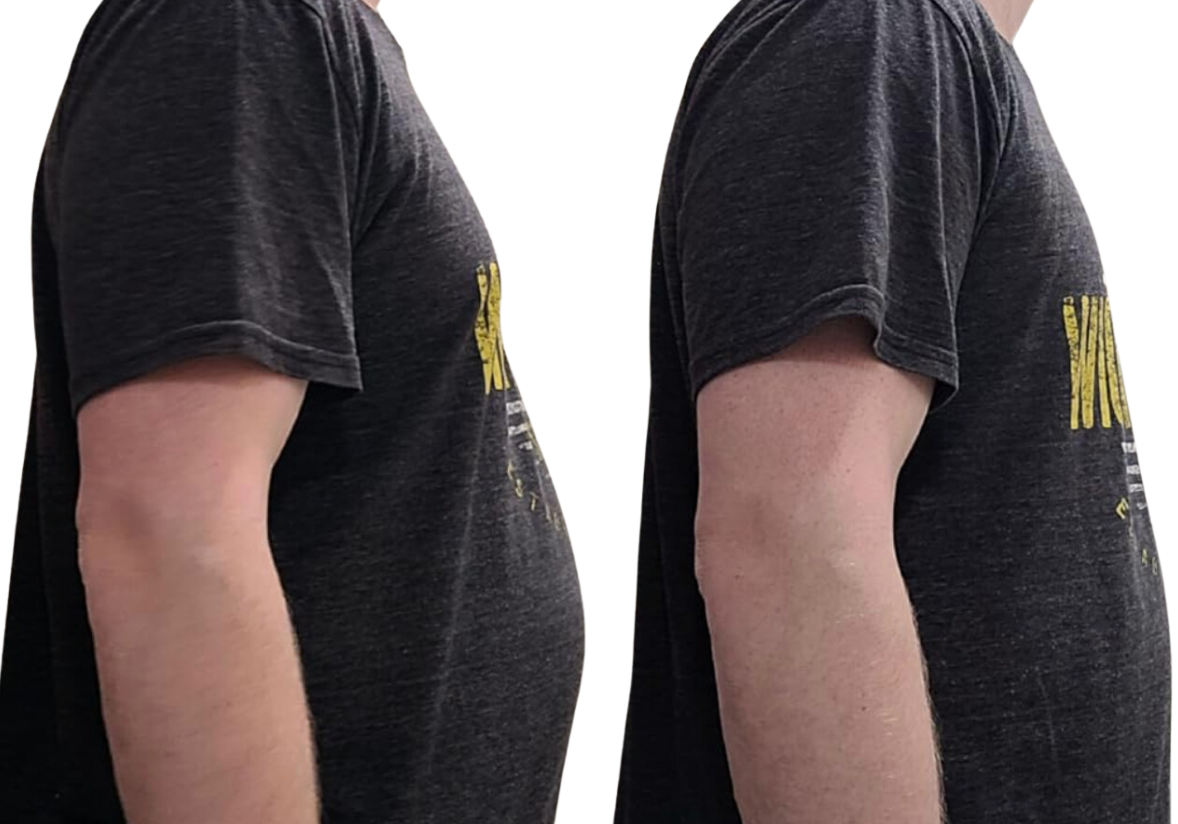If you're a guy dealing with man boobs, you might be looking to get rid of gynecomastia. , there's no quick fix. Gynecomastia is a health issue that leads to bigger breasts in men, and it can stem from different things, like being overweight or having hormone issues.
While some medical options exist, they can cost a lot and might not be covered by your insurance. Still, you can try some things to make gynecomastia less noticeable. For instance, shedding some pounds often helps to shrink your chest size.
Some treatments like risperidone can help make gynecomastia less noticeable. But if you want a long-term fix, you might think about surgery. Keep reading to find out more about gynecomastia and how Risperidone can be useful.
What is Gynecomastia?
Gynecomastia causes male breast tissue to grow larger. It can affect one or both breasts and might lead to pain, tenderness, or fluid coming from the nipples. While it's seen in teenage boys, gynecomastia can happen at any age.
Surgery to remove extra tissue is the main way to treat gynecomastia. Doctors may also suggest hormone therapy in some cases. Many men feel self-conscious about this condition, but it's quite common and has effective treatments.
What are the Causes of Gynecomastia?
Many things can lead to gynecomastia. Often, doctors can't pinpoint the exact reason. Here are some possible causes of gynecomastia:
- Hormonal imbalances: When estrogen and testosterone levels get out of whack, breast tissue can grow bigger. This happens during the teenage years and in grown-ups too.
- Certain medications: Some drugs for stomach ulcers, heart issues, and mental health problems can lead to man boobs.
- Obesity: Being overweight often causes gynecomastia. Extra fat turns testosterone into estrogen, which can make breast tissue swell up.
- Liver disease: A sick liver can't break down hormones throwing them off balance and causing gynecomastia to develop.
- Kidney failure: When the kidneys stop working , it can throw hormones out of whack. This hormonal upset sometimes leads to man boobs developing.
Certain illegal drugs like marijuana anabolic steroids, and heroin can also lead to gynecomastia. Sometimes, gynecomastia happens without any known reason.
How to Treat Gynecomastia
The cause of gynecomastia determines its treatment. Hormone therapy might be necessary if hormonal imbalance is the cause.
If certain medications are responsible, doctors may suggest changing or stopping them.
In most situations though, surgery to remove extra breast tissue is the go-to treatment. Surgeons can do this through a standard cut or a small cut around the areola.
Surgery usually works best to treat gynecomastia and can have long-lasting effects. Recovering from surgery takes about 4-6 weeks. During this time, you should avoid hard physical activity and let your cuts heal well.
Getting Rid of Gynecomastia Using Risperidone
You can treat gynecomastia in many ways, but you might not know about risperidone. Risperidone is a drug for mental health that helps treat this condition.
The exact way it works isn't clear, but people think it lowers prolactin levels in the body.
Prolactin is a hormone linked to breast growth so by cutting its levels, risperidone can help make breasts smaller.
Risperidone might have some side effects, but it's safe and works well to treat gynecomastia. If you're thinking about treating your gynecomastia, ask your doctor if risperidone could be a good choice for you.
Complications of Gynecomastia
Gynecomastia has no harmful effects, and problems rarely occur. Yet, in some instances, the growth of breast tissue may signal a more dangerous underlying issue, like cancer in the testicles.
You should visit your doctor to get checked if you feel pain, tenderness, or see discharge from your nipples. Most of the time though, gynecomastia doesn't put your health at serious risk.
How to Prevent Gynecomastia
No foolproof method exists to stop gynecomastia from happening. Still, you can take steps to lower your chances. If you're on medicine known to cause gynecomastia, check with your doctor about other options.
Shedding pounds can help cut your risk if you're carrying extra weight. Also, staying away from illegal drugs and anabolic steroids can help prevent gynecomastia from developing.
Gynectrol offers a solution to treat gynecomastia. This pill contains natural components that show results in addressing this issue.
Gynectrol works to shrink breast tissue and stop new tissue from forming. It provides a reliable method to tackle gynecomastia and delivers lasting outcomes.
You might want to check out Esteem Apparel Vests. These vests can help flatten your chest and make it look more masculine. The vest puts light pressure on the area, and you can wear it under your clothes. It's a way to ease gynecomastia symptoms without surgery.
Can You Get Rid of Gynecomastia Without Surgery?
While surgery has the biggest impact on treating gynecomastia, some non-surgical options can help to minimize the condition's visible signs. These include:
- Dieting and exercise
- Cutting back on alcohol
- Stopping smoking
- Steering clear of certain medications
- Using compression garments
- Applying topical gels or creams
Changing your lifestyle can help to lessen how noticeable gynecomastia is. But these changes won't cure the condition or stop new tissue from growing.
Can Gynecomastia Go Away on Its Own?
Sometimes, gynecomastia goes away by itself. This happens more often in teenage boys and young men, since hormones changing can cause this problem. But most of the time, gynecomastia won't disappear without treatment. If it sticks around, you should check with your doctor to have it looked at.
When Should You See a Doctor?
If you worry about how your chest looks, you should visit your doctor to have it checked. Gynecomastia doesn't cause harm and doesn't need treatment. But sometimes, it might be linked to a more serious health issue. You need to see your doctor for a check-up if you feel pain, tenderness, or notice any discharge from your nipples.
Should I Use Risperidone to Get Rid of Gynecomastia?
If you want to get rid of gynecomastia, risperidone might be worth a try. This atypical antipsychotic has an impact on reducing male breast size. Keep in mind that risperidone can have side effects, so it's best to talk with your doctor before you start treatment.
Another option to treat gynecomastia is Esteem Apparel vests. These vests put pressure on the chest, which helps make breast size smaller over time. Both risperidone and Esteem Apparel vests offer safe and effective ways to deal with gynecomastia.


























